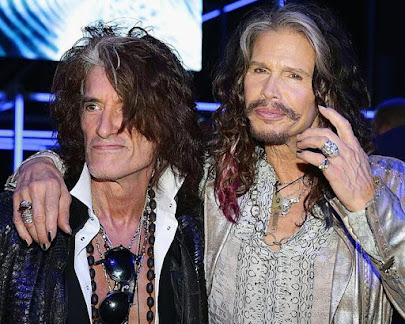Charlie Musselwhite may have grown up in Memphis, and spent much of his adult life in Chicago and San Francisco, but he was born in Mississippi, and now lives there in Clarksdale, of “Crossroads” fame. And Mississippi Son is an expression of his lifelong affinity with the acoustic country blues that emerged from Mississippi and throughout the South.
Musselwhite may be best known as a harp player, but he’s also played the guitar since his teens, and his guitar, voice and harmonica form the bedrock of this album, with occasional help from rhythm buddies Ricky ‘Quicksand’ Martin on drums and Barry Bays on stand-up bass. The
result is a down-home, stripped back affair, and though the 14 songs are split between originals and covers, one can scarcely hear the join.
For example, there’s a Tony Joe White groove to both the original ‘Blues Up The River’ and the take on John Lee Hooker’s ‘Crawling King Snake’, but in different flavours. There’s a peachy swing to the former, with tumbling guitar notes and bright harp over loping bass and tapping drums to accompany Musselwhite’s groaning vocal. But the latter has more of a dark chocolate taste, brooding and with bouts of wordless, moaned vocal.
Meanwhile Musselwhite’s own ‘In Your Darkest Hour’ feels like a descendant of Mississippi Fred McDowell’s ‘You Gotta Move’, and if its twinkling guitar feels like it's treading a familiar blues path, augmented by mournful harp, the real point is that Musselwhite nails the vibe. The same is true of ‘When The Frisco Left The Shed’, which may share some DNA with ‘Key To The Highway’, but interleaves Musselwhite’s guitar and voice beautifully, and adds a mellifluous harp break over the gently clacking rhythm. Charley Patton’s ‘Pea Vine Blues’ is another train song, but a snappier one, with a skipping, rattling rhythm from Martin on drums and some chirpily bird-like harmonica.
The melody of spring-in-the-step ‘Blues Gave Me A Ride’ carries undertones of ‘Stagger Lee’, given a lift by intertwining of pinging guitar and cheerful harp, while the slower ‘Drifting From Town To Town’ is ‘Red Rooster’-tinged, with an appealing, undulating bridge.
In a different vein, ‘The Dark’ is a folkie Guy Clark tune turned into a not-quite-talking-blues, not particularly rhythmic and with Musselwhite’s incidental guitar accompaniment leaning towards a lower pitch. And ‘Rank Strangers’ is similarly semi-spoken, a murky reflection on alienation with hints of Americana as the tune takes some novel turns.
Some tracks don’t add much to the equation though. A brief whirl through John Lee’s ‘Hobo Blues’ has some tension in its nagging, repetitive melody, but that’s about it. ‘Stingaree’ is a fairly inconsequential jaunt through some familiar blues tropes, albeit with a neat stop-time acoustic guitar segment. And the instrumental ‘Remembering Big Joe’ may feature some nifty picking and thumb-strumming bass from Musselwhite, but it still feels like something of a limbering up exercise, and with some moments of strings squeaking gratingly on frets.
For my money trimming the album by, say, four tracks would have said “never mind the width, feel the quality”. But still, throughout Mississippi Son the simple virtues of Musselwhite’s subtle vocals, rippling acoustic guitar and understated harp capture the spirit of country blues, underlining and celebrating his connection to his musical roots.
Mississippi Son is released by Alligator Records on 3 June.
Musselwhite may be best known as a harp player, but he’s also played the guitar since his teens, and his guitar, voice and harmonica form the bedrock of this album, with occasional help from rhythm buddies Ricky ‘Quicksand’ Martin on drums and Barry Bays on stand-up bass. The
 |
| Charlie Musselwhite - have harp, will travel Pic by Rory Doyle |
For example, there’s a Tony Joe White groove to both the original ‘Blues Up The River’ and the take on John Lee Hooker’s ‘Crawling King Snake’, but in different flavours. There’s a peachy swing to the former, with tumbling guitar notes and bright harp over loping bass and tapping drums to accompany Musselwhite’s groaning vocal. But the latter has more of a dark chocolate taste, brooding and with bouts of wordless, moaned vocal.
Meanwhile Musselwhite’s own ‘In Your Darkest Hour’ feels like a descendant of Mississippi Fred McDowell’s ‘You Gotta Move’, and if its twinkling guitar feels like it's treading a familiar blues path, augmented by mournful harp, the real point is that Musselwhite nails the vibe. The same is true of ‘When The Frisco Left The Shed’, which may share some DNA with ‘Key To The Highway’, but interleaves Musselwhite’s guitar and voice beautifully, and adds a mellifluous harp break over the gently clacking rhythm. Charley Patton’s ‘Pea Vine Blues’ is another train song, but a snappier one, with a skipping, rattling rhythm from Martin on drums and some chirpily bird-like harmonica.
The melody of spring-in-the-step ‘Blues Gave Me A Ride’ carries undertones of ‘Stagger Lee’, given a lift by intertwining of pinging guitar and cheerful harp, while the slower ‘Drifting From Town To Town’ is ‘Red Rooster’-tinged, with an appealing, undulating bridge.
In a different vein, ‘The Dark’ is a folkie Guy Clark tune turned into a not-quite-talking-blues, not particularly rhythmic and with Musselwhite’s incidental guitar accompaniment leaning towards a lower pitch. And ‘Rank Strangers’ is similarly semi-spoken, a murky reflection on alienation with hints of Americana as the tune takes some novel turns.
Some tracks don’t add much to the equation though. A brief whirl through John Lee’s ‘Hobo Blues’ has some tension in its nagging, repetitive melody, but that’s about it. ‘Stingaree’ is a fairly inconsequential jaunt through some familiar blues tropes, albeit with a neat stop-time acoustic guitar segment. And the instrumental ‘Remembering Big Joe’ may feature some nifty picking and thumb-strumming bass from Musselwhite, but it still feels like something of a limbering up exercise, and with some moments of strings squeaking gratingly on frets.
For my money trimming the album by, say, four tracks would have said “never mind the width, feel the quality”. But still, throughout Mississippi Son the simple virtues of Musselwhite’s subtle vocals, rippling acoustic guitar and understated harp capture the spirit of country blues, underlining and celebrating his connection to his musical roots.
Mississippi Son is released by Alligator Records on 3 June.





.jpg)


